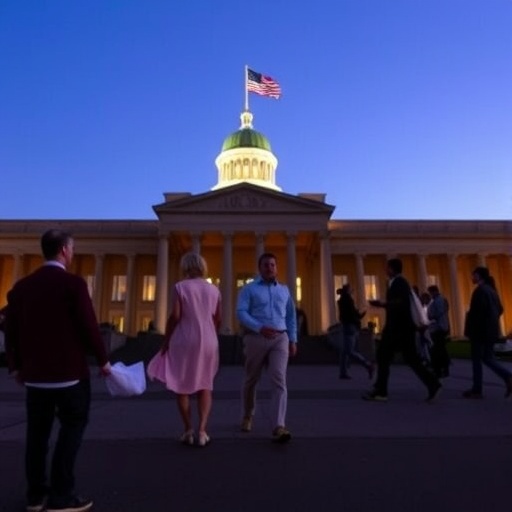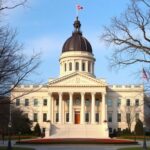In a bold move to democratize the ballot box, Virginia election officials have rolled out expanded Early voting options, including Saturday polling hours and new satellite locations, aiming to shatter barriers for millions of voters just months before critical statewide races.
This expansion, announced by the Virginia Department of Elections, comes at a pivotal time as the commonwealth gears up for the 2024 general elections, where voter turnout could reach record levels. By introducing these changes, jurisdictions across the state are addressing longstanding concerns about voter access, particularly for working families, students, and rural residents who struggle with traditional weekday polling schedules.
Saturday Polling Hours Ignite Weekend Voter Participation
The introduction of Saturday Early voting hours marks a significant shift in Virginia’s election landscape, allowing voters to cast ballots without sacrificing their weekdays. Starting this month, select jurisdictions will open polls on Saturdays from 9 a.m. to 5 p.m., providing a flexible alternative to the standard Monday-through-Friday schedule that has historically limited participation.
Fairfax County, home to over 1.1 million residents and a political bellwether, is leading the charge with full-day Saturday operations at its main Early voting centers. “We’re seeing a surge in requests for weekend access,” said Michelle Peterson, Fairfax County’s Director of Elections. “This isn’t just about convenience; it’s about ensuring every voice is heard, especially for those juggling multiple jobs or family obligations.”
Other areas joining the Saturday initiative include Arlington County and the City of Richmond, where early voting sites will extend into weekends to accommodate urban commuters. According to state data, Virginia’s early voting participation has hovered around 30-40% in recent cycles, but officials anticipate a 15-20% uptick with these new hours. This aligns with broader trends in Virginia elections, where reforms have gradually chipped away at restrictive voting laws enacted in previous decades.
Historically, Virginia has lagged behind neighboring states like Maryland and North Carolina in offering weekend voting. North Carolina, for instance, reported a 25% increase in early votes during its 2022 midterms after implementing similar Saturday options. Virginia’s move is seen as a direct response to that success, potentially boosting overall voter access in a state where 2020 saw over 1.1 million early votes cast amid pandemic-driven changes.
Critics of past election policies argue that limited hours disproportionately affected low-income and minority communities. A 2023 report from the Brennan Center for Justice highlighted that in Virginia, 15% of polling locations closed between 2012 and 2020, exacerbating access issues. The Saturday hours are a targeted countermeasure, designed to reclaim that lost ground and foster greater equity in the voting process.
Satellite Polling Locations Target Hard-to-Reach Areas
Beyond weekend expansions, Virginia is deploying satellite polling locations to bring the ballot directly to underserved neighborhoods, a strategy that’s revolutionizing how residents engage with early voting. These pop-up sites, often hosted in community centers, libraries, and even workplaces, reduce travel times and eliminate the need for trips to centralized facilities.
In rural Southwest Virginia, counties like Wise and Buchanan are establishing satellite locations in local high schools and churches, areas previously underserved by main polling stations. “For folks in the coalfields, getting to a polling place could mean a two-hour drive,” explained State Delegate Terry Kilgore, who advocated for the reform. “These satellites are a game-changer, making voter access a reality rather than a hurdle.”
Urban areas aren’t left behind either. In the Hampton Roads region, Norfolk and Virginia Beach are adding satellite sites at military bases and naval installations to serve active-duty personnel and their families. This is particularly timely as Virginia’s military population exceeds 130,000, many of whom face irregular schedules. The state plans to roll out over 50 new satellite locations statewide, a 30% increase from 2022, according to the Virginia Department of Elections.
Polling locations will operate under the same early voting window—typically two to three weeks before Election Day—with hours varying by site but generally from 8 a.m. to 7 p.m. Voters can locate these spots via the state’s official voter information portal, which has been updated with interactive maps for seamless navigation. This tech-forward approach is part of Virginia’s ongoing election reform efforts, which have included mobile voting units in previous cycles to combat geographic barriers.
Statistics underscore the need: A 2022 analysis by the Virginia Public Access Project found that 20% of eligible voters in rural counties skipped voting due to transportation issues. By decentralizing polling locations, officials aim to close this gap, potentially increasing turnout in areas where it dipped below 50% in the 2020 presidential election.
- Fairfax County: Satellites at community colleges and shopping malls.
- Richmond City: Sites in public housing complexes and senior centers.
- Roanoke County: Rural outposts in agricultural co-ops.
These targeted placements reflect a data-driven strategy, informed by voter feedback surveys conducted post-2022 midterms, where accessibility ranked as the top concern.
Election Officials and Advocates Champion the Reforms
The expansions have drawn widespread praise from election officials, advocacy groups, and political leaders, who view them as a cornerstone of Virginia’s election reform agenda. “This is more than procedural—it’s a commitment to inclusive democracy,” stated Christopher Piper, Virginia’s Commissioner of Elections. In a recent press conference, Piper emphasized that the changes stem from bipartisan legislation passed in 2023, building on momentum from the 2021 Voting Rights Act updates.
Advocacy organizations like the League of Women Voters of Virginia have long pushed for such measures. “Early voting expansions like these directly address voter suppression tactics that have plagued our state,” said executive director Jane White. Her group credits the reforms with empowering marginalized communities, noting that Black voters in Virginia used early voting at rates 10% higher than the general population in 2020.
Political analysts are equally optimistic. Dr. Lara Brown, an elections expert at George Mason University, told reporters, “Virginia’s proactive stance on voter access could set a national example, especially as other states grapple with restrictive laws.” She points to the potential for higher engagement in upcoming Virginia elections, including the 2025 gubernatorial race, where turnout could exceed 70% with these incentives.
However, not all feedback is unanimous. Some conservative groups, like the Virginia Republican Party, have expressed concerns over added costs—estimated at $2.5 million statewide for staffing and logistics—but acknowledge the benefits for broad participation. This balanced discourse highlights the reforms’ cross-aisle appeal, positioning Virginia as a leader in modernizing its electoral process.
Quotes from everyday voters echo this sentiment. In a canvassing effort by the ACLU of Virginia, participants in Prince William County shared stories of past frustrations: “I missed voting last time because of work—now, with Saturday options, I’ll be there,” said local teacher Maria Gonzalez.
Navigating the New Early Voting Landscape: A Voter’s Guide
For Virginians eager to take advantage of these enhancements, understanding the nuts and bolts is crucial. Early voting in Virginia typically begins 45 days before Election Day, with no excuse required to participate—a hallmark of the state’s progressive voter access policies. This year, with Saturday hours and satellite locations, the process is more user-friendly than ever.
To get started, registered voters should first confirm their status on the Virginia Department of Elections website. Once verified, they can select from an array of polling locations, now including the new satellites. No appointment is needed, but bringing a photo ID is recommended, though not mandatory for most voters under current election reform guidelines.
Key tips for a smooth experience:
- Plan Ahead: Check the interactive map for the nearest Saturday site or satellite location.
- Prepare Documents: Have your voter registration card or a utility bill handy as backup ID.
- Avoid Peak Times: Mid-morning slots on Saturdays tend to be less crowded, based on 2022 data.
- Explore Options: If in-person isn’t feasible, absentee voting by mail remains available, with expanded drop-off points at many satellites.
Accessibility features are also prioritized: All new sites will include ADA-compliant ramps, multilingual signage, and assistance for voters with disabilities. In a nod to digital inclusion, the state app now offers real-time wait time estimates, a feature piloted successfully in urban polling locations last year.
For college students, a demographic that comprised 12% of Virginia’s 2020 early voters, satellites near campuses like Virginia Tech and James Madison University will facilitate on-site voting. This is especially vital as out-of-state students often face logistical nightmares returning home on Election Day.
Overall, these measures are projected to streamline the process, reducing average wait times from 20 minutes in 2022 to under 10 minutes, per internal simulations by election officials.
Looking Ahead: Higher Turnout and Lasting Election Impacts
As Virginia rolls out these early voting enhancements, the ripple effects on future elections are poised to be profound. With voter access now fortified by Saturday hours and satellite polling locations, experts forecast a sustained boost in participation that could redefine the commonwealth’s political dynamics.
Projections from the University of Virginia Center for Politics suggest that expanded options could drive early voting to 50% of total ballots in 2024, up from 38% in 2020. This surge would not only amplify voices in Virginia elections but also influence national narratives, as the state remains a swing hub in presidential contests.
Long-term, these reforms signal a deeper commitment to election integrity and inclusivity. Officials are already discussing further innovations, such as 24/7 drop boxes and AI-assisted voter education, to build on this momentum. For voters, the message is clear: The doors to democracy are wider open than ever, inviting broader engagement in shaping Virginia’s future.
In the coming weeks, community workshops and media campaigns will educate residents on these changes, ensuring no one is left behind. As one election volunteer put it, “This isn’t just about voting—it’s about empowering a more representative commonwealth.” With these steps, Virginia is not only expanding access but also fortifying the foundation of its democratic process for generations to come.








